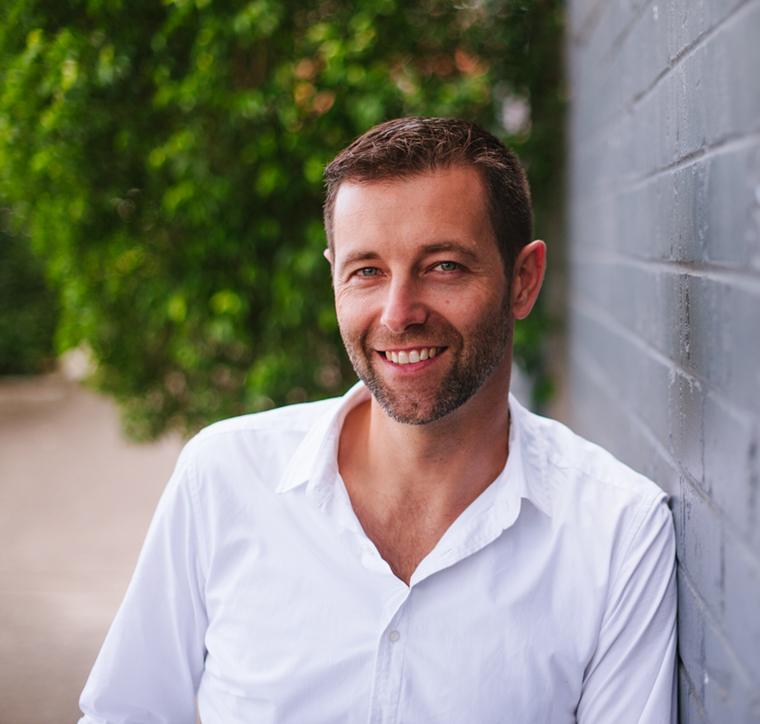Is Peace Possible?
America recently dropped a really big bomb on eastern Afghanistan and the media gave it almost as much attention as the rugby league gets every night. It was affectionately dubbed the 'mother of all bombs' (M.O.A.B) and was the largest conventional bomb ever developed. If there was a ‘father of all bombs’ title it would have to go to a nuclear missile ironically named ‘The Peacekeeper’. This missile was longer than a bus and could fly 10,000 km then deploy 10 individually targeted 300 kiloton warheads. Now if my math is correct that equates to the destructive force of about 150 of the atom bombs dropped on Japan in WW2. 'And hey. Why stop at just 1 'Peacekeeper', America built 114 of them!'
Mercifully they have now all been decommissioned - although they did recycle the warheads into smaller, less offensive nuclear missiles (whatever that means). I love the late Carl Sagan’s quote that ‘The nuclear arms race was like two sworn enemies standing waist deep in gasoline, one with three matches, the other with five.’ The stakes were, and still are apocalyptic in scale.
For as long as people have been fighting, men (lets be honest it's not women) have been feverishly perfecting the art of destruction, stockpiling our ‘peacekeepers’ and giving them ominous names so everyone else knows that you better not pick a fight with us. Even 2200 years ago Archimedes (another man) invented weapons named ‘The Scorpion’, ‘The Claw’ and ‘The Death Ray’ to fend off the Roman empire. And while we have not experienced anything like the horror of the major wars of the 20th Century for many decades, despite our apparent enlightenment and all our cleverness, war is ever present somewhere on earth.
Perhaps, as Ecclesiastes 3.8 says, there is ‘a time for war’ in the face of great evil. But war remains a futile and tragic manifestation of our deep brokenness which mostly fails to produce lasting peace. Martin Luther King Jr said it well when he said ‘Wars are poor chisels for carving out peaceful tomorrows.’
This Anzac day, we rightfully honour the brave men, women and their families across the wars who sacrificed everything for the freedom we have. We recognize that the life we enjoy came with a very high price, paid not by us, but for us. This, a shadow of the greatest sacrifice of Jesus, laying down His life for us, so we might all have life.
Is peace possible? Ultimately peace in our families, communities and among nations won’t be cultivated from the seeds of violence. A lasting peace that saturates all of life (shalom) grows in the soil of peace with God and peace within. It grows as we die to ourselves, as we lay down our agendas, egos and anxieties. It grows as we let Jesus be our Prince of Peace and greatest desire. The apostle Paul wrote ‘Do not be anxious about anything, but in every situation, by prayer and petition, with thanksgiving, present your requests to God. And the peace of God, which transcends all understanding, will guard your hearts and your minds in Christ Jesus.’ (Philippians 4:6-7)
Where is peace absent from your life today?
What anxiety could you bring to Jesus, to exchange for His peace?
For as long as people have been fighting, men (lets be honest it's not women) have been feverishly perfecting the art of destruction, stockpiling our ‘peacekeepers’ and giving them ominous names so everyone else knows that you better not pick a fight with us. Even 2200 years ago Archimedes (another man) invented weapons named ‘The Scorpion’, ‘The Claw’ and ‘The Death Ray’ to fend off the Roman empire. And while we have not experienced anything like the horror of the major wars of the 20th Century for many decades, despite our apparent enlightenment and all our cleverness, war is ever present somewhere on earth.
Perhaps, as Ecclesiastes 3.8 says, there is ‘a time for war’ in the face of great evil. But war remains a futile and tragic manifestation of our deep brokenness which mostly fails to produce lasting peace. Martin Luther King Jr said it well when he said ‘Wars are poor chisels for carving out peaceful tomorrows.’
This Anzac day, we rightfully honour the brave men, women and their families across the wars who sacrificed everything for the freedom we have. We recognize that the life we enjoy came with a very high price, paid not by us, but for us. This, a shadow of the greatest sacrifice of Jesus, laying down His life for us, so we might all have life.
Is peace possible? Ultimately peace in our families, communities and among nations won’t be cultivated from the seeds of violence. A lasting peace that saturates all of life (shalom) grows in the soil of peace with God and peace within. It grows as we die to ourselves, as we lay down our agendas, egos and anxieties. It grows as we let Jesus be our Prince of Peace and greatest desire. The apostle Paul wrote ‘Do not be anxious about anything, but in every situation, by prayer and petition, with thanksgiving, present your requests to God. And the peace of God, which transcends all understanding, will guard your hearts and your minds in Christ Jesus.’ (Philippians 4:6-7)
Where is peace absent from your life today?
What anxiety could you bring to Jesus, to exchange for His peace?
‘Peace I (Jesus) leave with you; my peace I give you.
I do not give to you as the world gives.
Do not let your hearts be troubled and do not be afraid.’
(John 14:27)
I do not give to you as the world gives.
Do not let your hearts be troubled and do not be afraid.’
(John 14:27)












